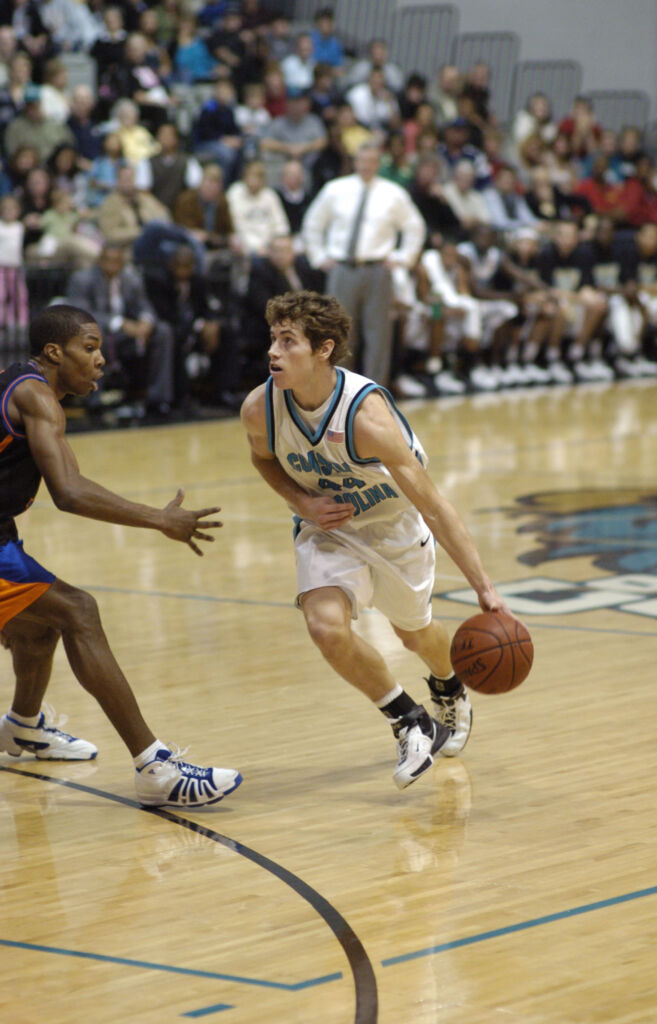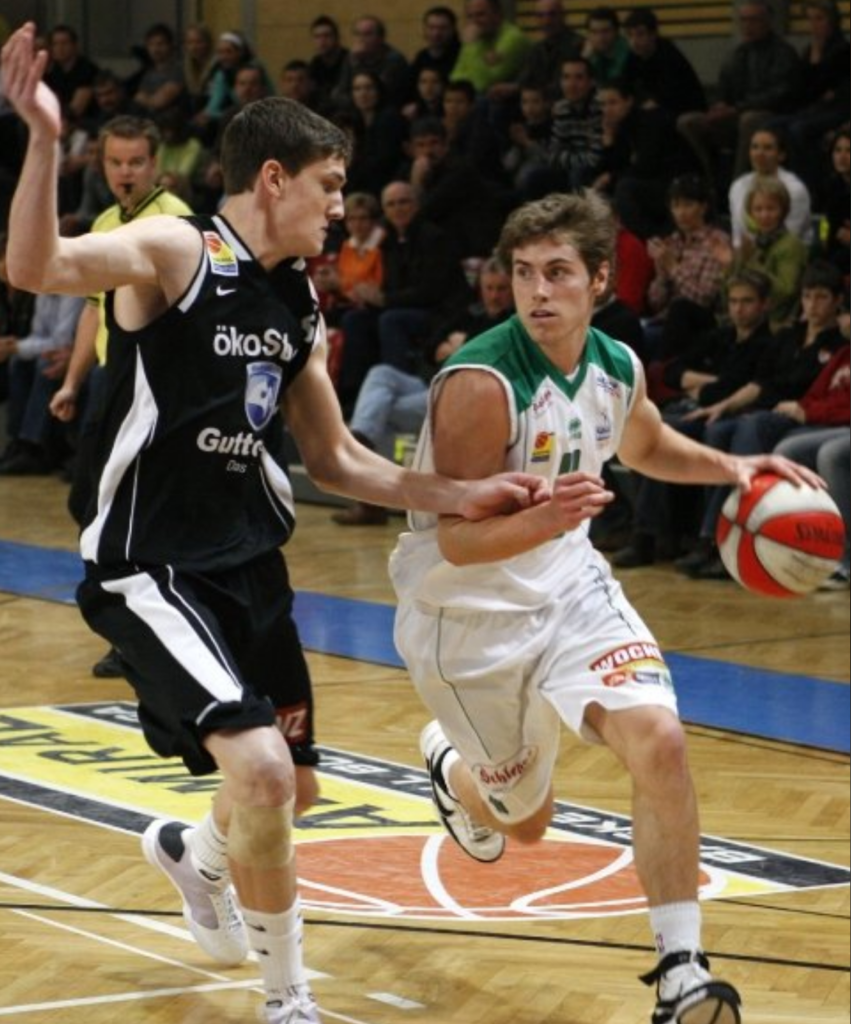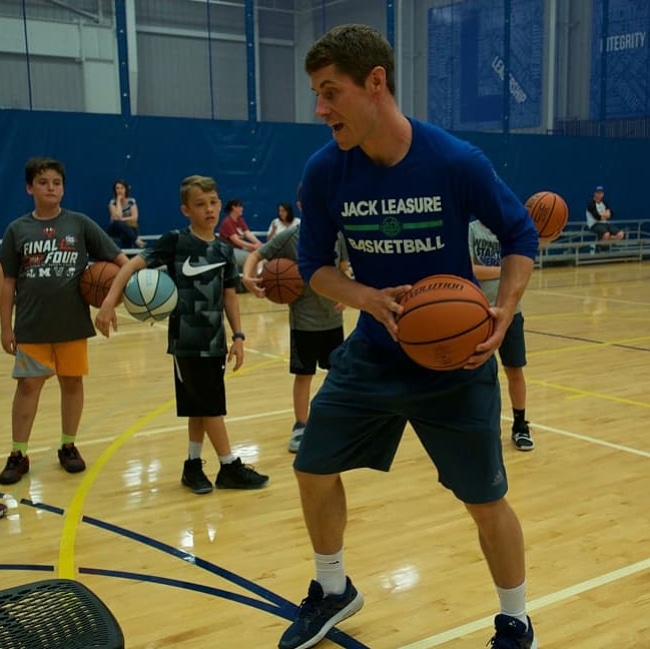With Australia leading the way, other nations with historic ties to the Queen take different paths to elite development and profitability in the sport
In the South Pacific Ocean at the bottom of New Zealand’s South Island, one of the southernmost cities in the world, Invercargill, fills its arena with orange whenever the Southland Sharks play at home. The region’s support of its local National Basketball League (NZNBL) team is just one example of the passion for the sport that exists in some Commonwealth countries, where football, rugby, and cricket have long reigned supreme as the most popular team sports.
“There’s not many places that are closer to Antarctica than that,” said Jack Leasure, an American who played in the NZNBL for four seasons and was an opponent in Southland. “They would get everybody there and there’d be five, 6,000 people and it’d be packed and [it was] just a great basketball environment.”
Leasure played games in front of 10,000 fans in high school before playing in NCAA Division I at Coastal Carolina, but he described the Sharks’ ILT Stadium Southland as one of the best atmospheres he’s ever experienced.
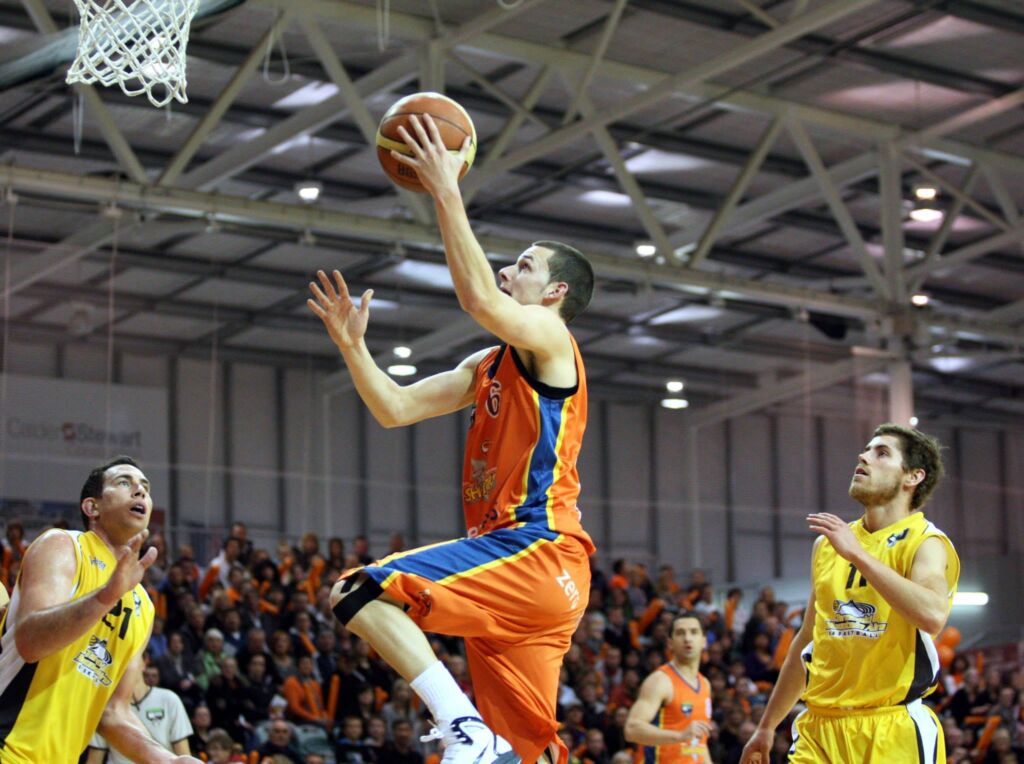
The Sharks inaugural season in 2010 coincided with Leasure’s first season with the Mountainairs. The league, created in 1982 as the Countrywide Basketball League, recently secured a deal with ESPN to broadcast all 56 games of its pandemic-modified 2020 season.
That spirit for sport in Invercargill, New Zealand can be found in pockets of the 54 members of the Commonwealth of Nations, a political group of sovereign countries that are mostly former British territories. And while most of these countries, like the UK, have rich sporting histories, one of the most popular sports in the world in basketball still lags behind.
But that might be changing.
There’s no question that basketball culture has taken hold in Commonwealth communities. But the Commonwealth Games, held every four years since 1930 besides a gap during World War II, have only included basketball twice; originally in Melbourne in 2006 and on the Gold Coast in 2018. Team Australia handily won both competitions for both men and women.
Kieron Achara, one of the UK’s most accomplished basketball players of the last decade, was the captain of Team Scotland at the 2018 games. Achara and Tosin Oyelese, who plays for the Westminster Warriors of the semi-pro English Basketball League, both believe that basketball in the UK has challenges ahead to match its global counterparts.

Small town ball where the passion is evident
Achara and Oyelese both said that Newcastle has the best basketball scene in the UK, despite having a strong football culture as well. To them, it shows that it’s possible for both sports to coexist and thrive in a place that’s held football as the sporting pinnacle for ages. Interestingly enough, it’s often in smaller regions like a Newcastle or Southland where passion for the sport is most evident. Of course, the big cities house the love for basketball as well, but it’s easier for the game to be pushed to the background.
When discussing the game atmosphere in Southland, former NZNBL player Leasure explained that sometimes it was the smallest towns and cities that supported the sport most. He said that in New Zealand’s largest city, Auckland, the local team had a tough time drawing fans because of everything else going on.
Southland Sharks General Manager Jill Bolger explained that the passionate fanbase in Southland results not from a lack of things to do, but rather a pride and passion for sport in general, which can be found just about anywhere in the world.
“Southlanders generally are very parochial, very sports-minded, outdoors-type people who like to get behind anything in the community,” Bolger said.

Bolger’s Sharks, who have won three national titles during their decade in the league, are one of the NZNBL’s top three teams, all of which are sitting out this season. She said although it’s been hard for her to watch the current season because she wishes the Sharks were playing, the exposure is great for the league and the season off allows her organization to prepare operations for 2021.
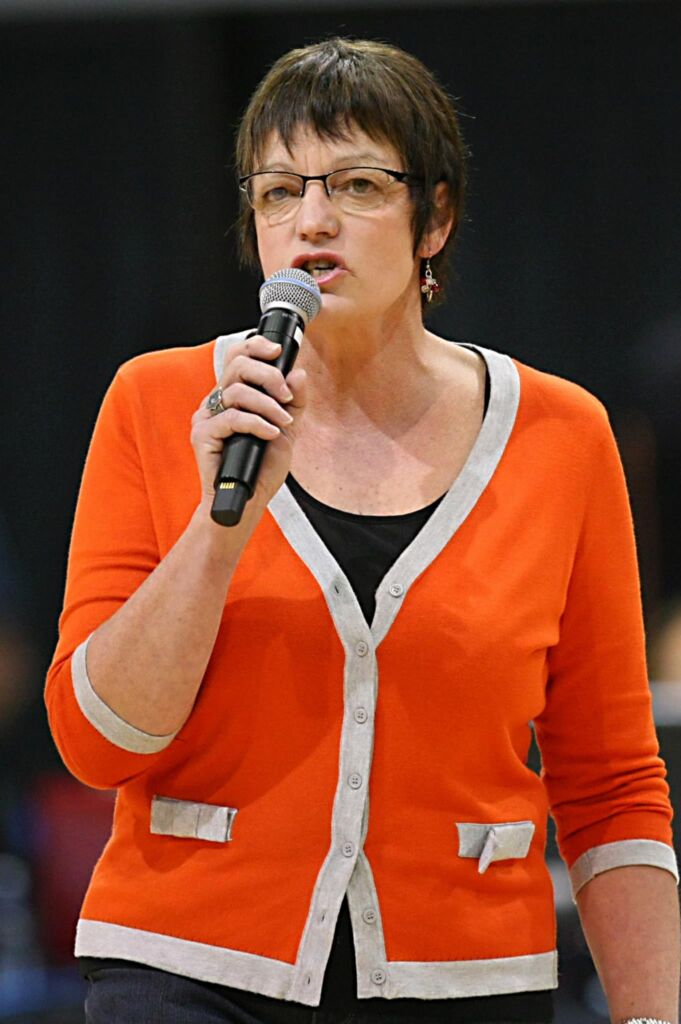
While pondering what makes the Sharks fan base so special, Bolger discussed a bar brawl that occurred in 2014. Several Sharks players got into a fight outside of a bar in New Plymouth, leading to three players being removed from the team. Bolger explained that she and the rest of the front office were nervous about the response from Sharks fans when they returned to Southland for a game a few days later.
“It was a very disturbing incident in our history and it was very concerning that we’d only been in the league four years and it could well have put a bad taste in people’s mouth in regard to the Sharks and the future as part,” Bolger said.
Sharks GM Bolger speaks to the fans. Image courtesy of Southland Sharks.
Being down three players even caused the team’s head coach, Paul Henare, to exit retirement and suit up as a player-coach.
“But what happened was, the crowd came – it was probably twice as big as what a normal game crowd would be,” Bolger said. “I mean, people just came out to support the team and thus the administrators and the players were relieved. That night kind of illustrated to me that the community loved the game, they loved the players, they loved the organization and that support for me is something I’ll never forget.”
As the NZNBL and other Commonwealth leagues like the British Basketball League (BBL) try to capitalize on the existing interest in the sport, they can look to Australia for an example of how sport development and profitability can go hand in hand.
If the NBA is the be all, end all of basketball leagues, how do we think about leagues in other countries?” asked Burton, former commissioner of the Australian NBL.
Australia and Canada lead the way
Although Europe has typically carried the best professional basketball outside the NBA, the Australian NBL, not to be confused with the NZNBL, has gained momentum in efforts to return to its “golden era” of the 90s. According to Front Office Sports, the league has increased yearly attendance and viewership numbers for five straight seasons in efforts to join the ranks of European leagues like Liga ACB (Spain), LNB Pro A (France), the ABA League (countries formerly of Yugoslavia), and VTB United (Russia). This past season, the Australian NBL also featured prominent American prospects RJ Hampton and LaMelo Ball, which helped raise its profile.
Although each Commonwealth country has its own unique path to developing elite basketball, some notes can be taken from Australia on how to create globally competitive talent alongside a burgeoning professional league. Rick Burton, former Commissioner of the Australian NBL, has taken notice as the league and country have made improvements. Burton, now a Professor of Sport Management at Syracuse University, believes that for leagues like the NBL and their parent countries to achieve global success, they must decide on their approach.
“If the NBA is the be all, end all of basketball leagues, how do we think about leagues in other countries?” Burton pondered. “Is it some kind of utilitarian value? Which is, ‘we’re just trying to develop enough of our guys to be competitive at the Olympics.’ Or is it the capitalistic wealth maximization model which is, ‘I own this team in order to be able to make lots of money.’”
When Burton first took the job as the Australian NBL’s commissioner in 2003, the sport’s national governing body, Basketball Australia, owned the league in addition to the team trademarks. Burton said it created a divide between the teams’ private owners who were trying to maximize profits and the Australian Olympic Committee, which wanted to use the league as a way to make the national team more globally competitive. Over time, Australia started developing elite talent to the point where homegrown players were skipping the NBL to play in the NCAA or NBA in the US.
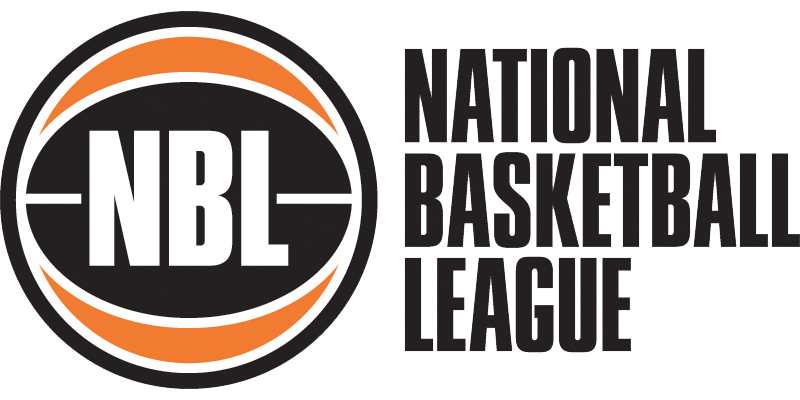
Then in 2013, the NBL de-merged from Basketball Australia and two years later the league was purchased by Larry Kestelman, who has overseen the recent growth spurt along with current commissioner Jeremy Loeliger. Just as Burton helped secure a TV deal with Fox back in 2004, Kestelman and Loeliger have gained deals with ESPN and SBS (Australian public TV network) and have started to see the value of NBL teams rise in recent years. But TV deals and sponsorships – the NBL is currently sponsored by Hungry Jack’s, the Australian version of Burger King – won’t be all that franchises need to turn profits.
Image courtesy of Wikimedia Commons.
For example, most teams in both the Australian and New Zealand NBLs, as well as the BBL, the UK’s top league, don’t own their arenas. Burton pointed out that for sports franchises to be financially successful, it’s often the real estate play that is key. So, for these leagues to drive profitability, the franchises will need to own their arenas as a way to make money year round from the building, rather than paying expensive rent.
Burton compared the current structure of the NBL to Major League Soccer in North America. “Only recently has [the NBL] been moving to a point where the owners of the franchises are really the owners of the league,” Burton said. “The NBL never really had that benefit until Larry Kestelman got in and he’s been doing a great job.”
So, Australia has taken both approaches over time, but the utilitarian approach led to the wealth maximization strategy. As the NBL rises in value, the country continues to achieve global success in the sport. Burton was present in Melbourne last August when Team Australia beat Team USA for the first time ever. That win, in addition to finishing fourth in the 2019 FIBA World Cup after close losses to Spain and France, propelled the Boomers to No. 3 on the FIBA national rankings. The Australian women’s team, the Opals, are No. 2, showing that Australia has joined the top tier of international basketball.
But even as Australia achieves global success through international competition and in sending athletes to the NCAA and NBA, other countries of the Commonwealth struggle to find their own groove in the sport. Canada has had more than 50 players join the NBA, in part thanks to its proximity to the U.S. and being home to the sport’s inventor, James Naismith. But the country hasn’t built a successful professional structure and sits at No. 21 on FIBA’s world rankings.
Cameroon meanwhile has recently developed NBA stars like Joel Embiid and Pascal Siakam and other places, like New Zealand, India, and the UK are experiencing grassroots efforts to further build infrastructure and talent in addition to stronger pro leagues. The love for the sport is there, but basketball will need more than love to grab hold of their sport industries.
Education and coaching is key for the UK and New Zealand
Over the past two decades New Zealand, Canada, India, Cameroon, and the UK have all made strides towards a larger presence in the global basketball landscape.
Achara, who retired from the BBL’s Glasgow Rocks in 2019, believes like many of his peers that there’s still much work to be done for the sport to reach the levels it has in other countries.
“I think that we need to find a way to expand our talent pool,” Achara said. “Secondly for me would be in the pathway. Actually seeing that if you play basketball and you stick in it, you can get a scholarship, you can play at the highest level, you can make a living from that. I think that it has to be palpable.”
There’s not a basketball economy,” Achara said.
When Achara attended Stirling High School in his hometown of Stirling, Scotland, the school did not have an organized basketball team. That didn’t stop him and his growing 6’10” frame from making it to prep school in Maine before playing for five years at Duquesne University and ten years of professional basketball.
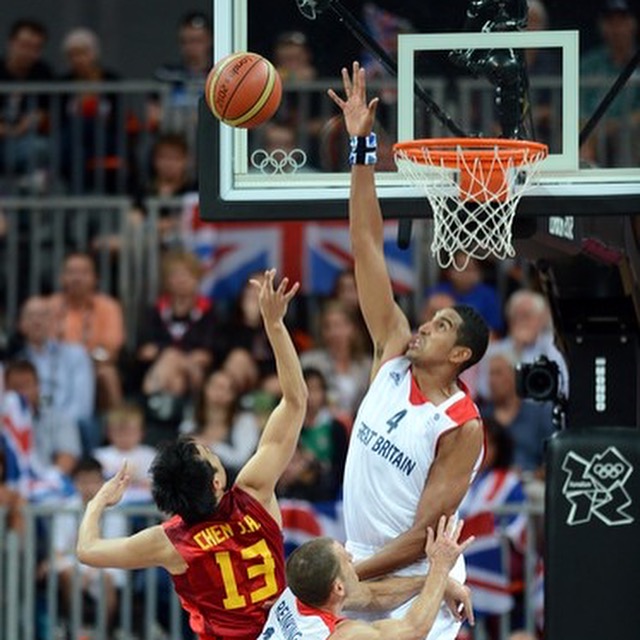
Image courtesy of Kieron Achara.
Recently, he’s been in contact with at least five young athletes from the UK who either play in NCAA Division I schools or are on their way. For the 2019-2020 season, 27 Brits played in Division I. The country has also had some globally successful players like Luol Deng, John Amaechi, Pops Mensah-Bonsu, and current NBA player OG Anunoby. But Achara said that UK schools must create a better connection with the sport to foster more international stars.
Today, most youth basketball teams in the UK are reliant on volunteer coaches who have to juggle full-time jobs, Achara explained. He would like to see paid coaches who also teach health and wellness classes in the schools, but that would take additional funding.
“There’s not a basketball economy,” Achara said. “So I’m looking at ways to create that and I think the schools would be a great place to be because I think education and coaching really go hand in hand.”
As for the professional level, Achara said, having imported players helps not only to draw more interest in BBL games but also to teach and develop young, local players. Achara said he’ll continue to push for linking education with coaching to create paths and better develop talent in the sport nationally. Basketball New Zealand provides an example of how it can be done.
Leasure, who spent four seasons with the Taranaki Mountainairs of the NZNBL after a season in the Austrian Bundesliga, said that while there’s added pressure on imported players to perform highly, there’s also more freedom to play how they want.
“It was fun to be on the same team for four years and I had coaches and an organization that really believed in me and kind of let me just have a little bit of the green light,” Leasure said.
Images courtesy of Coastal Carolina and Jack Leasure.
Having that green light to shoot helped Leasure average over 20 points and lead the league in three point field goals in each of his four seasons with the Mountainairs. But it was the people and the beauty of the country, as well as the team’s involvement in the community, that almost swayed him and his wife to nationalize and stay in New Zealand. He said that the NZNBL encourages its players to create connections throughout the communities in which they play, which is part of the government’s agreement to help fund the sport.
“Part of my job, we were actually paid as basketball coaches, so we would teach basketball at the schools during the day,” Leasure said. “They got funding from the state to have this program to teach basketball all over the country. Some of the really rural schools – some of the kids hadn’t even heard of basketball before.”
Ultimately, Leasure returned to the U.S. in 2014 to take over head coaching duties at his high school alma mater, McQuaid Jesuit, where he won the 2003 New York State championship. In addition to coaching, Leasure runs a training camp in the summer. He said that his time playing professionally overseas has helped to shape his coaching philosophy.
Developing infrastructure, culture, and retention
In both England and New Zealand, basketball has elevated to be one of the more popular sports among youth. The main concern for those who want to see the sport continue to expand in these and other Commonwealth countries is that at a certain point, the kids are forced to stop playing due to lack of infrastructure or opportunities.
“Basketball courts are not part of the culture at all here,” said Tosin Oyelese, who plays for the Westminster Warriors of the semi-pro English Basketball League.
Oyelese also runs his own basketball website and podcast called The Baller’s Voice and works for FIBA Media when he’s not suited up for the Warriors. He’s been trying to expand the UK’s basketball culture through his platform and was able to work the 2019 FIBA World Cup in China, which the British team failed to qualify for. But he saw some things in China that he would like to see in the UK.
“You go to China and you go to other countries and see how basketball is done properly, then you come to the UK and it’s not so much like that,” Oyelese said. “There’s a whole lot of reasons for it, but I want to be part of the change I want to see.”
Like Achara, Oyelese believes that more opportunities to play at the youth level and beyond need to be created.
“Our best guys usually go elsewhere to play and then come back and represent the national team and that’s pretty much it,” Oyelese said. “But I really want to make something for all the other guys, even if it’s just basketball as a vehicle to get a [degree] or be a champion of the court.”
For years, one of the biggest issues with basketball in the UK has been a lack of funding, something that has created a stir among national players like WNBA player Temi Fagbenle. The issue has also created a head scratching conundrum. UK Sport, the country’s primary funding body, has said that only teams who medal will receive an increase in funding.
In 2018, that decision led to a fear that the national basketball team would go extinct, referred to at the time as a “crisis.” UK Sport did provide 75,000 pounds in basketball funding for the 2020 Tokyo Olympics, only after the sport missed out on the first round of money. While it might make sense that more funding could help to develop more talent, Oyelese said that he tries to think outside of the funding question, since it’s been ongoing for so long.
“I always encourage guys in the UK to see what can be done without funding or minimal funding, because my worst nightmare personally is that we get the funding and we don’t use it well and we kind of show these guys that they were right to not give us the money,” Oyelese said. “So, I think understanding how to allocate resources and make the most of what you have is our key to success or at least progress.”
One issue with funding basketball in Commonwealth countries is that although participation numbers may be higher than for other sports, it’s sometimes the sports that are considered more “elitist” that receive larger amounts of money, according to Bolger, general manager of the NZNBL’s Southland Sharks. For example, New Zealand sailing teams have received hundreds of millions of dollars in funding, which has contributed to winning America’s Cup in three of the last seven competitions. Recently, the government announced it would be halting that funding.
“They get a lot of money for rowing, cycling and things like that,” Bolger said. “But you don’t see hundreds and hundreds of kids doing those sports, or hundreds of thousands of kids like you do with basketball. So, I think maybe it’s not a matter of the fact that the funding is not there. I think it’s more of the criteria that they use to apply it.”
Here’s where pointers can be taken from Australia. Although the sporting cultures and cultures in general vary greatly between each Commonwealth nation, money is universal.
“Australia has proven that with just 25 million people, you can raise up players that are good enough to be able to play in the NBA and make interest in the game important,” said former NBL commissioner Burton. “Now, part of the reason is the Australian Government pours a lot of money into sport.”
Burton, who served as the chief marketing officer for the U.S. Olympic Committee at the 2008 Beijing Olympics, explained that Australia’s Olympic Committee figured it has a better chance to win medals in basketball, where less elite players are needed than for the more popular sport in football.
“You only have five players on the court at a time,” Burton said. “It’s easier to imagine winning a medal in basketball if you’ve got the right talent development program than it is football where you need 11.”
Building up the professional leagues to the grassroots and vice versa
The growth of basketball in Commonwealth countries also provides more business opportunities for people around the world. As Burton mentioned, most NBL teams don’t own their stadiums. In Europe, some sports clubs, such as FC Barcelona, run successful teams in a variety of sports. And American companies, like the Fenway Sports Group, which owns the Boston Red Sox and Liverpool F.C., may be looking for the next hot spot.
Burton thinks the NBL may provide that destination as it becomes more profitable. ESPN recently released a story indicating that NBL ownership could become a step towards NBA ownership.
“Americans are now buying up those clubs and turning them into teams,” Burton said. “And those are economic forces that those countries have not really seen. So I’m bullish on the Australian NBL. Because I think you’ll start to see Americans not only buy the team, but then build the stadium.”
As these countries seek to spark more global interest in their game, some leagues are looking at implementing new rules to make the game more exciting. Recently, the Canadian Elite Basketball League (CEBL), which was founded in 2017, took on the Elam Ending for its pandemic-affected 2020 summer season.
The ending was created by Nick Elam, a Ball State University professor who wanted to do away with the late game foul-fest that is seen in many high-level basketball games. Although the ending has been used in The Basketball Tournament since 2017 and more recently in the 2020 NBA All Star Game, Elam said he originally thought that international competitions may be the first to bite on adopting the rule.
The CEBL also hired Elam as a consultant for the current season. Though he hopes to see the NBA, NCAA, and the Olympics ultimately adopt the rule, finding a place in professional leagues outside the U.S. is a start.
“When I originally thought of this back in 2007 and thought of the path for this to keep growing to the highest levels of the game, I thought that a very likely path was for it to be adopted at the international leagues in the meantime,” Elam said. “So here we are getting the first foray into FIBA play.”
The main purpose of the rule is to create more exciting endings without the game being drawn out to exhaustive lengths. The NZNBL originally had hoped to bring on the ending for its 2020 season as well, before scrapping the idea due to international gambling regulations. The league still hopes to implement the rule sometime in the future.
Meanwhile, in Australia, the aforementioned Ball and Hampton played this past season thanks to the league’s Next Stars program, which is meant to provide an alternative development pathway for young prospects to prepare for the NBA. As shown by the league’s viewership and attendance numbers, the plan has worked so far.
Inspiring the next generation
In July, the BBL’s London Lions announced that they would be joining the Champions League, the third tier of European international basketball competition. Should the team fare well, interest in the sport can only improve, Achara said. He said that even the name of the European competition bodes well for drawing more English fans, due to the fact that the world’s top soccer competition is known as the UEFA Champions League.
But he wants to make sure that any success is sustained and transferred into the grassroots infrastructure. Since at least 2012, one of the most internationally recognized English players, Luol Deng, has led efforts to develop elite basketball in the UK through his foundation. People like Deng, who achieved success in the world’s highest competition, help to raise the game’s profile. But Achara and Oyelese both believe that more must be done by those who don’t quite make it to the NBA or who just enjoy the sport for its recreational aspect.
After finishing his career at Duquesne, Achara played in Spain, Italy, and Greece’s top leagues. But as was always the plan, he returned to the BBL to finish his career with his home country’s Glasgow Rocks. He hopes more players will do the same.
“If you have an opportunity to go into the NBA, that’s a success story, you would never turn away from that,” Achara said. “But there’s always going to be that tier below that and if they could stay in the UK and develop as a player and have a nice life too? So, that’s the goal. For me it meant so much. I know I had a chance to kind of inspire and help the next generation come through.”
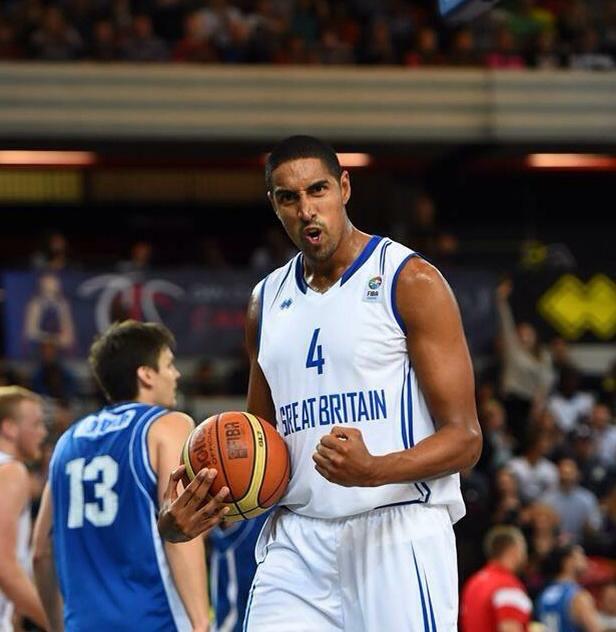
Header image courtesy of the Southland Sharks.


